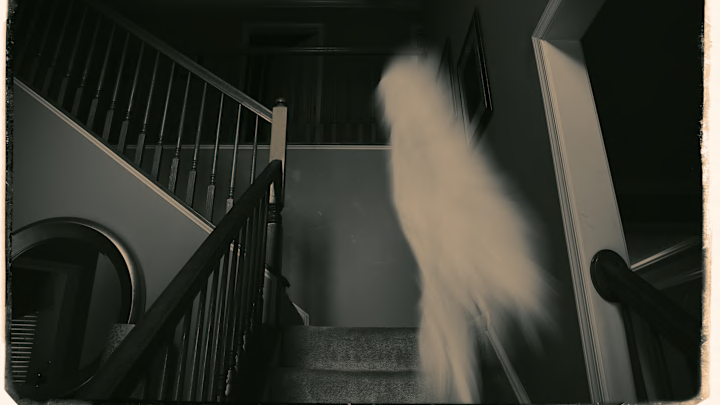In just a few episodes of the first season of American Horror Story, it was made very clear to the audience that numerous people had been killed and maimed in the haunted house that the show’s main characters live in. It’s was also mentioned that the characters’ real estate agent was obligated by law to disclose that people had been murdered in the house.
It is true, though? Do horror writers ask us to suspend our disbelief about too-broadly drawn characters and the paranormal, but not real estate law? If you’re buying a haunted house, does anyone really have to tell you?
Ghoul Disclosure
The answer is no. And yes. And sort of. It all depends on the where the house is and the way the laws are worded there.
Most U.S. states require sellers to fill out a standard form disclosing what they know about the property's condition and list any potential physical defects. This is a relatively recent reverse of the older “buyer beware” norm in real estate and lets buyers know ahead of time of any major problems with their dream home.
There are other defects besides faulty wiring and sinking foundations, though. Some states go a step further and require sellers to also disclose “emotional defects” that could impact and stigmatize a property. This includes traumatic events like murders and suicides, reported paranormal activity and even proximity to homeless shelters.
Whether you have to disclose anything and what types of defects you have to disclose all depends on the jurisdiction. If a seller does have to disclose emotional defects, which ones and how much detail they need to go into again varies among locations.
In Massachusetts, for example, the possibility of a property being “psychologically impacted” isn’t considered a “material fact required to be disclosed” to potential buyers. In Virginia, emotional defects like murders and ghost sightings only have to be disclosed if they physically affect the property (Blood running from the walls? Gotta tell the buyer). In California, as American Horror Story demonstrates, sellers do have to disclose emotional defects, but only in a very limited way. The state Civil Code requires that a death on the property only needs to be disclosed if it occurred less than three years prior to the sale and older incidents need to be addressed only if the buyer specifically asks. Some jurisdictions are a little more vague in the way they word things, so smart sellers could potentially disclose what they need to without having to drop words like “haunted,” “poltergeist” or “murder spree.”
The Haunted Mansion
There’s an infamous court case often cited when it comes to disclosure law, Stambovsky v. Ackley, that revolves around a haunted house.
Helen Ackley owned a big old Victorian home in Nyack, New York. The town sits about 30 miles north of New York City on the west bank of the Hudson River, in an area known for many haunted places, including the legendary Sleepy Hollow. Mrs. Ackley was well aware that her house was supposedly haunted. In fact, she claims to have seen several ghosts herself, including one that gave her approval for a new paint color in the living room and several dressed in colonial-era clothing. She described her home’s ghosts for the local newspaper and Reader's Digest and even got the house featured on a “haunted house” walking tour of Nyack. When she decided to put the house up for sale and retire to Florida, though, Mrs. Ackley suddenly got very shy about the ghosts.
Jeffrey and Patrice Stambovsky wanted to buy the house and agreed to Ackley’s asking price of $650,000. It wasn’t until after the couple gave Ackley a $32,500 down payment that they were talking to a local about their purchase and were asked, “Oh, you're buying the haunted house?”
The Stambovskys were not exactly thrilled to learn about the alleged haunting of their new home and attempted to back out of the sale. Ackley would neither admit any wrongdoing nor cancel the sale and return the deposit, so the Stambovskys took her to court.
They lost the case, with the court citing their caveat emptor (“let the buyer beware”) responsibility to uncover the property’s defects before committing to a sale. They appealed and the Appellate Division of State Supreme Court ruled in their favor in a 3-2 decision.
The court found that, regardless of whether or not ghosts are real and the house was truly haunted, the fact that the house had been widely reported as haunted affected its value. Ackley “had deliberately fostered the belief that her home was possessed by ghosts” in the past and was therefore at fault for not disclosing this attribute of the house to the buyers, who, not being locals, could not readily learn about the defect on their own. On that note, one of the justices joked, “Who you gonna call?... Applying the strict rule of caveat emptor to a contract involving a house possessed by poltergeists conjures up visions of a psychic or medium routinely accompanying the structural engineers and Terminix man on an inspection of every home subject to a contract of sale.”
The Stambovskys eventually got their money back and Ackley eventually sold the house despite, or maybe because of, the fact that she had to disclose her supposed ghosts.
